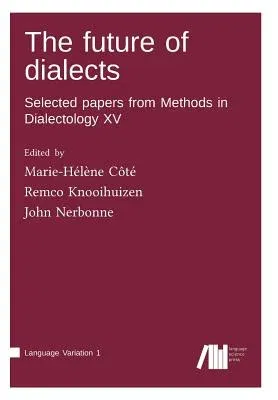Traditional dialects have been encroached upon by the increasing
mobility of their speakers and by the onslaught of national languages in
education and mass media. Typically, older dialects are "leveling" to
become more like national languages. This is regrettable when the last
articulate traces of a culture are lost, but it also promotes a complex
dynamics of interaction as speakers shift from dialect to standard and
to intermediate compromises between the two in their forms of speech.
Varieties of speech thus live on in modern communities, where they still
function to mark provenance, but increasingly cultural and social
provenance as opposed to pure geography. They arise at times from the
need to function throughout the different groups in society, but they
also may have roots in immigrants' speech, and just as certainly from
the ineluctable dynamics of groups wishing to express their identity to
themselves and to the world. The future of dialects is a selection of
the papers presented at Methods in Dialectology XV, held in Groningen,
the Netherlands, 11-15 August 2014. While the focus is on methodology,
the volume also includes specialized studies on varieties of Catalan,
Breton, Croatian, (Belgian) Dutch, English (in the US, the UK and in
Japan), German (including Swiss German), Italian (including Tyrolean
Italian), Japanese, and Spanish as well as on heritage languages in
Canada.


